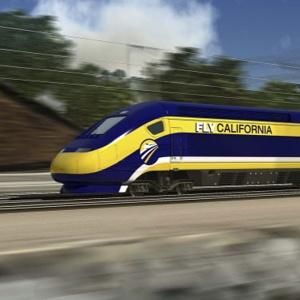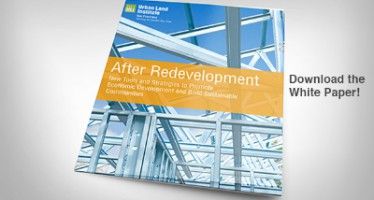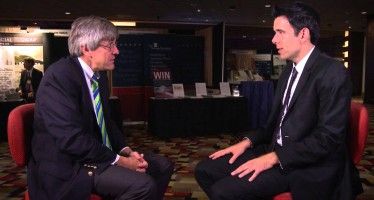Feds hope to reclaim over $2 billion in funds spent on California bullet train
 Following through on President Donald Trump’s twitter threats, the U.S. Department of Transportation on Tuesday afternoon said it would not disburse a previously planned $929 million in federal funds for the state’s troubled high-speed rail project and indicated it hoped to recover $2.5 billion in federal grants that had already been spent on the train.
Following through on President Donald Trump’s twitter threats, the U.S. Department of Transportation on Tuesday afternoon said it would not disburse a previously planned $929 million in federal funds for the state’s troubled high-speed rail project and indicated it hoped to recover $2.5 billion in federal grants that had already been spent on the train.
“This is clear political retribution by President Trump, and we won’t sit idly by,” Gov. Gavin Newsom said in a statement issued soon after the Transportation Department announcement. “This is California’s money, and we are going to fight for it.”
Newsom’s depiction of the decision as a Trump vendetta can be buttressed by the president’s repeated clashes with California over federal policies, but the state may face more of a difficult fight to retain bullet-train funding than top officials are willing to admit. While $929 million of the federal funding was directly approved by Congress – the other $2.5 billion came from the massive economic stimulus bill of 2009 – both chunks of money are covered by Federal Railroad Administration (FRA) rules that are meant to ensure federal funds are used properly.
Lack of ‘reasonable progress’ can trigger refund demand
One such provision specifically applies to the $2.5 billion that the Department of Transportation may want refunded: “Any failure to make reasonable progress on the project or other violation of this agreement that significantly endangers substantial performance of the project shall provide sufficient grounds for the FRA to terminate this agreement.”
As the Los Angeles Times reported in November, the California High-Speed Rail Authority was 13 years behind schedule in completing the now-$77 billion project. Citing a lack of available funding, Newsom has at least for now suspended moves to build the train beyond a route already under construction in the Central Valley and forced out longtime rail board chairman Dan Richard.
Yet the project isn’t just on shaky grounds on the question of proper use of federal funding. In mid-2009, in its application for federal stimulus dollars, the state of California made representations to the U.S. Department of Transportation about the project’s solid financing, careful planning and strong accountability provisions that have been repeatedly belied by state audits and reviews as well as independent reporting.
The Obama administration – which was disappointed that California was the only state to accept federal high-speed rail funding – was content to extend deadlines to try to help the Golden State project find its way. Under Obama, rail officials also rejected complaints from California House Republicans that the state project was breaking federal rules.
State claimed it had sound project in requesting stimulus funds
But if the U.S. DOT chooses to go after the California High-Speed Rail Authority, it has a wealth of examples that it can site to show the state’s 2009 grant request made false claims about the soundness of the state project. The short list:
— In January 2010, the Legislative Analyst’s Office concluded that the rail authority didn’t have a legal business plan because it anticipated using promises of subsidies if revenue estimates fell short to attract investors. Such subsidies were explicitly banned by Proposition 1A, the 2008 state ballot measure providing $9.95 billion in bond seed money for the then-$34 billion project. This is why the project has never attracted outside investors, unlike projects in Europe in which governments promised to share the risk if revenue goals weren’t met.
— In April 2012, to reduce the cost of the project – which had ballooned to $98 billion – Gov. Jerry Brown and rail authority officials announced that they would instead pursue a $64 billion “blended” rail system in which high-speed trains shared much-slower regular tracks for approximately 45 miles in the crowded urban areas on each end of the primary San Francisco-Los Angeles route. But as critics – including former state Sen. Quentin Kopp, considered the father of the state’s bullet train project – immediately noted, this meant that what the state wanted to build wasn’t actually a high-speed rail line linking San Francisco and Los Angeles. That’s what was promised to state voters in 2008 and the federal government in 2009.
— In October 2015, the Los Angeles Times reported that it had obtained documents that showed primary contractor Parsons Brinckerhoff had warned the rail authority in 2013 that a $9 billion cost overrun was likely on the project’s initial phase from Burbank to Merced. The authority didn’t disclose this to the public or revise cost estimates upward – decisions that could have been prosecuted if done by publicly held corporations.
What happens next from here is murky. But as the Associated Press noted, the federal government doesn’t need California to write it a check to get its money back. If the Department of Transportation concludes the state didn’t live up to its commitments with federal funds, it could withhold federal dollars on unrelated projects until it gets back all the money that it believes was misspent.
Chris Reed
Chris Reed is a regular contributor to Cal Watchdog. Reed is an editorial writer for U-T San Diego. Before joining the U-T in July 2005, he was the opinion-page columns editor and wrote the featured weekly Unspin column for The Orange County Register. Reed was on the national board of the Association of Opinion Page Editors from 2003-2005. From 2000 to 2005, Reed made more than 100 appearances as a featured news analyst on Los Angeles-area National Public Radio affiliate KPCC-FM. From 1990 to 1998, Reed was an editor, metro columnist and film critic at the Inland Valley Daily Bulletin in Ontario. Reed has a political science degree from the University of Hawaii (Hilo campus), where he edited the student newspaper, the Vulcan News, his senior year. He is on Twitter: @chrisreed99.
Related Articles
Is bringing back redevelopment a good idea?
The Urban Land Institute seeks to rebuild redevelopment in California. The essence of the proposal is that redevelopment should be
Video: Would a flat tax make CA’s comeback last?
CalWatchdog.com editor-in-chief Brian Calle discusses the California economic comeback with writer Stephen Moore.
Feds cloud pot picture in CA
Over the strenuous objections of some California lawmakers, the Department of Justice vowed to continue prosecuting the medical marijuana industry




